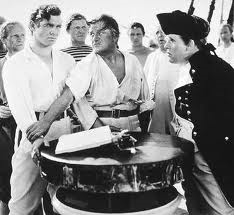 I shot out a traffic light the other day with my shotgun, one that has been giving me fits lately as I go to work. No, I didn't actually shoot it, but I have found myself fantasizing about doing so lately as I have become increasingly agitated while waiting on this particular light. In fact, I've noticed I'm becoming more irritable lately and have even found myself yelling expletives at machines, particularly my computer and cell phone. No, I don't think I'm going through a change of life. Heck, I wouldn't even know what a hot flash was, but I don't think I'm alone. When I mention this to my friends, they recognize their level of impatience is rising as well. I have older friends who are retired and appear much less stressed out and this got me thinking as to what was the cause of the discrepancy. True, I am still actively employed and they are not, but this is as it has always been. There must be something else.
I shot out a traffic light the other day with my shotgun, one that has been giving me fits lately as I go to work. No, I didn't actually shoot it, but I have found myself fantasizing about doing so lately as I have become increasingly agitated while waiting on this particular light. In fact, I've noticed I'm becoming more irritable lately and have even found myself yelling expletives at machines, particularly my computer and cell phone. No, I don't think I'm going through a change of life. Heck, I wouldn't even know what a hot flash was, but I don't think I'm alone. When I mention this to my friends, they recognize their level of impatience is rising as well. I have older friends who are retired and appear much less stressed out and this got me thinking as to what was the cause of the discrepancy. True, I am still actively employed and they are not, but this is as it has always been. There must be something else.
Other than being employed, I am much more imbued with technology than my predecessors. For example, I make extensive use of computers on a daily basis. I write and communicate with them, I prepare presentations and spreadsheets, develop and use data bases and web pages, process financial transactions, and I use them for entertainment purposes. I have a cell phone which I use only occasionally, unlike a lot of people who seem to be addicted to them. My children are probably more proficient with such devices than I am, not to mention games and digital multimedia. Then it hit me; through our technology we have been nurturing a sense of instant gratification thereby affecting our tolerance.
Take photography as a small example. Just fifty years ago you would have a simple box camera where you carefully loaded a roll of film, usually consisting of just 12 shots (exposures). After you took your "snapshots" you would take the film to a drug store to be processed at a price and normally requiring a couple of days. 35mm cameras slowly made their way into our lives offering superior pictures with a roll of 36 shots. Nonetheless you would still have to wait to have the film processed. The point is, because you had limited exposures which cost you money to process, you tended to be more judicious in taking a photograph which was normally used for special occasions, such as group shots at birthdays, anniversaries, reunions, etc. or to capture memories while on vacation. Today it's different. You would be hard pressed to find anyone without ready access to a digital camera of some kind (the cell phone took care of that). Now we expect to take voluminous instant pictures and upload them to the Internet for sharing with family and friends. Whereas fifty years ago, the average family may have taken no more than 100 pictures in a year, today we take thousands and distribute them around the world instantly. And if we cannot, we become terribly upset.
This leads me to believe there has been a significant change in our dispositions due to our enhanced use of technology. It would be interesting to see some research substantiating how our tolerance levels have changed over the years, thereby leading to heightened stress in our society. Technology has dramatically altered how we access news, our eating and sleeping habits, even how we learn which, in turn, affects our mental acuity, such as our alertness, our attention span and our sense of work ethic.
Technology has conditioned us to be intolerant of inefficiencies and limitations thereby causing us to think faster, virtually, and to multitask. Think about it; we don't like to wait in traffic, we expect to be able to call and talk to any person anytime we want, we want information at our fingertips, we expect to be able to listen to any song or watch any movie whenever we're in the mood, we want to get in and out of hospitals, we want instant food, instant pictures, instant credit, instant money, instant everything. We drive faster and talk faster because we have been conditioned to do so. The pace of business has also picked up considerably because it is driven by technology. We want things to be built faster and cheaper, and have no patience for anything less.
When John Lennon wrote his song "Instant Karma!" he was poking fun at our inclination to want everything instantly, that we didn't want to work hard for anything, such as instant coffee, instant food, etc. Since he wrote the song in 1970 there have been sweeping changes to technology beyond what Lennon could have imagined as we have developed an unforeseen addiction to it.
Our sense of instant gratification today causes us to throw childlike tantrums when we cannot get something on demand. Waiting is one thing, our tolerance level is another. I contend our personalities are being subliminally distorted by technology. We obviously want everything faster, cheaper and better, but is it possible that too much communications is a bad thing? Or too much entertainment, or too much information? If it distorts our culture negatively, the answer is, Yes.
There is a certain amount of Parkinson's Law being applied here. For example, video games used to be nothing more than tic-tac-toe, then PacMan was introduced, both of which were amusing but rather lethargic by today's standards. Now we have realistic video graphics featuring blood and guts that move at warp speed and teaching questionable ethics. As the pace of video games increased, so did our pulse.
I find one of the biggest differences between my generation and my older retired friends is we no longer know how to enjoy the moment. We are constantly pushing ourselves to move aggressively faster. Not enough people are finding time to unplug and decompress, and, No, collapsing in front of the boob tube at night is not the answer. Activities such as reading, attending civic events, art, exercise, sightseeing, fishing, etc. offer a distraction that a lot of us need to regain our composure. In other words, there is nothing wrong with occasionally stopping to smell the roses.
If things are this hectic early in the 21st century, imagine what we'll be like by the 22nd. We already see signs of change in our youth who want everything now and as painlessly as possible thereby creating a sense of entitlement. Older people have trouble understanding why youth no longer has the drive and desire to earn things. The answer is rather obvious; they've been conditioned to think this way. It would be interesting to see what would happen if the plug was suddenly pulled from our technology. People would probably go through withdrawal symptoms before finding it necessary to think for themselves again, to learn to cooperate, communicate, socialize, and all of the other people related skills that have been altered over the years. It would actually be quite fascinating, but, of course, this will never happen.
Finally, consider these lyrics from Lennon's "Instant Karma!" -
Instant Karma's gonna get you
Gonna knock you right in the head
You better get yourself together
Pretty soon you're gonna be dead
What in the world you thinking of?
Laughing in the face of love
What on Earth you tryin to do?
It's up to you, yeah, you
Instant Karma's gonna get you
Gonna knock you right in the face
You better get yourself together darling
Join the human race
Keep the Faith!
Note: All trademarks both marked and unmarked belong to their respective companies.
 Tim Bryce is a writer and the Managing Director of M. Bryce & Associates (MBA) of Palm Harbor, Florida and has over 30 years of experience in the management consulting field. He can be reached at timb001@phmainstreet.com
Tim Bryce is a writer and the Managing Director of M. Bryce & Associates (MBA) of Palm Harbor, Florida and has over 30 years of experience in the management consulting field. He can be reached at timb001@phmainstreet.com
For Tim's columns, see:
http://www.phmainstreet.com/timbryce.htm
Like the article? TELL A FRIEND.
Tune into Tim's THE BRYCE IS RIGHT! podcast Mondays-Fridays, 11:30am (Eastern).
Copyright © 2011 by Tim Bryce. All rights reserved.
 I've been summoned for jury duty twice. Both times I had mixed emotions about serving. On the one hand I understand and appreciate the need for a jury of your peers, which I consider an important responsibility for being a citizen of the United States. There are still a lot of third world countries out there who do not provide for such jurisprudence and believe you are guilty until proven innocent, as opposed to the other way around. On the other hand though, we are always summoned at the worst possible time. For example, you are called to serve just as you are preparing to go out of town either on important business or an expensive nonrefundable vacation. I think it's a "Murphy's Law." In my case, I had some important projects I was working on at the time and felt the summons to be an imposition. Although I dutifully presented myself, I was not in the best of moods. Fortunately I was never actually selected to a jury and allowed to leave. Good thing for the defendant too as I was in a hanging mood by the time I got to the court house.
I've been summoned for jury duty twice. Both times I had mixed emotions about serving. On the one hand I understand and appreciate the need for a jury of your peers, which I consider an important responsibility for being a citizen of the United States. There are still a lot of third world countries out there who do not provide for such jurisprudence and believe you are guilty until proven innocent, as opposed to the other way around. On the other hand though, we are always summoned at the worst possible time. For example, you are called to serve just as you are preparing to go out of town either on important business or an expensive nonrefundable vacation. I think it's a "Murphy's Law." In my case, I had some important projects I was working on at the time and felt the summons to be an imposition. Although I dutifully presented myself, I was not in the best of moods. Fortunately I was never actually selected to a jury and allowed to leave. Good thing for the defendant too as I was in a hanging mood by the time I got to the court house. Over the years, I believe I've seen just about every type of organizational structure in the corporate world, be it the traditional hierarchy, matrix, project teams, etc. No matter how you slice it though, unless you are the top dog, there is always going to be at least one person you have to report to, someone who is ultimately responsible for authorizing your paycheck. Even the top dog has to report to someone, such as shareholders. Regardless of who you report to, you owe your allegiance to your superior. If you don't like the person, request a transfer or take another job elsewhere. I'm old-school in this regard; as long as you are in the person's employment, do not malign him or ridicule him, come to his defense instead. Loyalty is a rare commodity these days, particularly due to obnoxious micromanagement and rocky economics, but you have to realize your success ultimately depends on your superior's success. Believe me, if he is struggling, you're next. You can make all the unflattering remarks you want about your boss after you have left. In the meantime, you owe him your support.
Over the years, I believe I've seen just about every type of organizational structure in the corporate world, be it the traditional hierarchy, matrix, project teams, etc. No matter how you slice it though, unless you are the top dog, there is always going to be at least one person you have to report to, someone who is ultimately responsible for authorizing your paycheck. Even the top dog has to report to someone, such as shareholders. Regardless of who you report to, you owe your allegiance to your superior. If you don't like the person, request a transfer or take another job elsewhere. I'm old-school in this regard; as long as you are in the person's employment, do not malign him or ridicule him, come to his defense instead. Loyalty is a rare commodity these days, particularly due to obnoxious micromanagement and rocky economics, but you have to realize your success ultimately depends on your superior's success. Believe me, if he is struggling, you're next. You can make all the unflattering remarks you want about your boss after you have left. In the meantime, you owe him your support. I always liked the word "gobbledygook" ever since I first heard it in my High School English class. If memory serves me correctly, the term resulted from World War II to combat bureaucratic processes that impeded progress in the war plants. Basically, it refers to unclear or wordy jargon that is more inclined to confuse than to clarify something. It seems to me there is an abundance of gobbledygook in our daily vernacular. Let me give you a few examples of such expressions that particularly tests my patience.
I always liked the word "gobbledygook" ever since I first heard it in my High School English class. If memory serves me correctly, the term resulted from World War II to combat bureaucratic processes that impeded progress in the war plants. Basically, it refers to unclear or wordy jargon that is more inclined to confuse than to clarify something. It seems to me there is an abundance of gobbledygook in our daily vernacular. Let me give you a few examples of such expressions that particularly tests my patience. My mom has two miniature dachshunds whom she is very attached to. Like a lot of dog owners, she pampers them and frankly, I think they lead a very comfortable existence. It's a good gig. All they have to do is return her love and try not to soil the carpet too often. Other than that, she dotes on them as if they were her own children. They have comfortable beds to sleep in, plenty of toys and chew sticks to occupy their time, they can play in a fenced-in yard, and have homemade dinners prepared for their finicky tastes. I would probably sign up for such a program myself, but I fear my testicles would be sacrificed like the dogs did.
My mom has two miniature dachshunds whom she is very attached to. Like a lot of dog owners, she pampers them and frankly, I think they lead a very comfortable existence. It's a good gig. All they have to do is return her love and try not to soil the carpet too often. Other than that, she dotes on them as if they were her own children. They have comfortable beds to sleep in, plenty of toys and chew sticks to occupy their time, they can play in a fenced-in yard, and have homemade dinners prepared for their finicky tastes. I would probably sign up for such a program myself, but I fear my testicles would be sacrificed like the dogs did. Recently I diagnosed myself as suffering from an acute case of Herdophobia, an anxiety disorder related to being amongst too many people. Actually, I think I have been suffering from it for quite some time now. Only recently did I start looking into it after taking an ocean cruise over the holidays. Our ship was one of the larger ones which held approximately 2,500 passengers. Although there were mostly Americans on board, there were a lot of other cultures represented including China, Japan, Western Europe, and several Spanish speaking countries. It was most definitely a heterogeneous environment. Despite their cultural differences, most of the passengers appeared to get along harmoniously as long as they were supervised by the ship's crew. However, when they were turned loose under their own accord, bedlam ensued as people came down with a bad case of the stupids. At least that was my perspective of the situation.
Recently I diagnosed myself as suffering from an acute case of Herdophobia, an anxiety disorder related to being amongst too many people. Actually, I think I have been suffering from it for quite some time now. Only recently did I start looking into it after taking an ocean cruise over the holidays. Our ship was one of the larger ones which held approximately 2,500 passengers. Although there were mostly Americans on board, there were a lot of other cultures represented including China, Japan, Western Europe, and several Spanish speaking countries. It was most definitely a heterogeneous environment. Despite their cultural differences, most of the passengers appeared to get along harmoniously as long as they were supervised by the ship's crew. However, when they were turned loose under their own accord, bedlam ensued as people came down with a bad case of the stupids. At least that was my perspective of the situation. When I come home at night after work, my wife and I typically talk about what we did that day. My wife gives me a journal description of her day from the time she got up until we finally meet at night. She's quite articulate in her adventures of the day which may explain why she looks puzzled at me when she asks me how my day went and I respond by saying simply "Fine" or "Good." Actually, I have a "Bad" day now and then, but not too often. I usually have but one a year, and I don't mean a type of day where you run into some problems at work or a key decision doesn't go your way. I'm talking about a day where everything consistently unravels before your eyes and you are powerless to do anything about it. Maybe a better adjective would be a "Rotten" day. I had one a couple of weeks ago thereby ruining my day.
When I come home at night after work, my wife and I typically talk about what we did that day. My wife gives me a journal description of her day from the time she got up until we finally meet at night. She's quite articulate in her adventures of the day which may explain why she looks puzzled at me when she asks me how my day went and I respond by saying simply "Fine" or "Good." Actually, I have a "Bad" day now and then, but not too often. I usually have but one a year, and I don't mean a type of day where you run into some problems at work or a key decision doesn't go your way. I'm talking about a day where everything consistently unravels before your eyes and you are powerless to do anything about it. Maybe a better adjective would be a "Rotten" day. I had one a couple of weeks ago thereby ruining my day. Have you ever wanted something so bad that you worked night and day in a Herculean effort to obtain it? No? Then you do not understand the concept of persistence and determination. You probably also feel you should be entitled to something simply because you are who you are or were present when something happened, regardless if you put forth any effort or not, a kind of winning the Lottery phenomenon. If so, I consider such an attitude as tragic as you will never value anything nor likely experience success of any kind.
Have you ever wanted something so bad that you worked night and day in a Herculean effort to obtain it? No? Then you do not understand the concept of persistence and determination. You probably also feel you should be entitled to something simply because you are who you are or were present when something happened, regardless if you put forth any effort or not, a kind of winning the Lottery phenomenon. If so, I consider such an attitude as tragic as you will never value anything nor likely experience success of any kind. Over the holidays I read President George W. Bush's new book,
Over the holidays I read President George W. Bush's new book,  My father has been gone for six years now. We worked together for nearly thirty years and in that time, he taught me the ins and outs of the information systems industry and the corporate world. What I particularly miss about him is the arguments we would get into. I don't mean vicious discourse but rather serious debates on a variety of topics. He had a good logical mind and we would often spar if for no other reason than to clarify an idea or concept. My dad was old school though who was of Scottish stock and came up the hard way. If you screwed up, he would let you know about it loud and clear. There was no sugarcoating a mistake with him. Over time I came to learn the reason he jumped down your throat was that he didn't want you to commit the same mistake twice, and to his credit, you wouldn't.
My father has been gone for six years now. We worked together for nearly thirty years and in that time, he taught me the ins and outs of the information systems industry and the corporate world. What I particularly miss about him is the arguments we would get into. I don't mean vicious discourse but rather serious debates on a variety of topics. He had a good logical mind and we would often spar if for no other reason than to clarify an idea or concept. My dad was old school though who was of Scottish stock and came up the hard way. If you screwed up, he would let you know about it loud and clear. There was no sugarcoating a mistake with him. Over time I came to learn the reason he jumped down your throat was that he didn't want you to commit the same mistake twice, and to his credit, you wouldn't. A person's trustworthiness can be measured by the number of metal keys he possesses. Each key represents a trust or responsibility the person has committed to maintaining. I tend to believe the more keys a person has, the more he is trusted; the fewer keys he possesses, less so. I have three sets of keys I maintain; one set for my office and home, one for the Masonic Lodge where I serve as Secretary, and a set of car keys; in all, I generally carry 40+ keys which is a lot and quite uncomfortable if I try to carry them in a single pocket.
A person's trustworthiness can be measured by the number of metal keys he possesses. Each key represents a trust or responsibility the person has committed to maintaining. I tend to believe the more keys a person has, the more he is trusted; the fewer keys he possesses, less so. I have three sets of keys I maintain; one set for my office and home, one for the Masonic Lodge where I serve as Secretary, and a set of car keys; in all, I generally carry 40+ keys which is a lot and quite uncomfortable if I try to carry them in a single pocket. People in the Capital are only now beginning to realize the size of the federal government is too massive and thereby contributing to our deficit. The president has ordered wage freezes to which I say, "So what?" as it is only a temporary solution. Even the president's debt reduction commission has come to the realization the government is simply too big. To illustrate, from the commission's "Moment of Truth" report: "Washington needs to learn to do more with less, using fewer resources to accomplish existing goals without risking a decline in essential government services." The report goes on to suggest trimming the government's work force by 10% and budget by 15%. No doubt this will save money, but it is only a guess as to how much to trim. I contend they could trim as much as 25% or more of the work force and still provide adequate government service.
People in the Capital are only now beginning to realize the size of the federal government is too massive and thereby contributing to our deficit. The president has ordered wage freezes to which I say, "So what?" as it is only a temporary solution. Even the president's debt reduction commission has come to the realization the government is simply too big. To illustrate, from the commission's "Moment of Truth" report: "Washington needs to learn to do more with less, using fewer resources to accomplish existing goals without risking a decline in essential government services." The report goes on to suggest trimming the government's work force by 10% and budget by 15%. No doubt this will save money, but it is only a guess as to how much to trim. I contend they could trim as much as 25% or more of the work force and still provide adequate government service. When new people join companies and nonprofit groups there is a natural tendency for them to try and change the culture to suit their work habits, attitudes, and customs. Such changes are sometimes welcomed by the culture, but more often than not, it is steadfastly resisted and the person is rebuffed. Those people who believe the culture should adapt to them, as opposed to the other way around, are in for a rude awakening.
When new people join companies and nonprofit groups there is a natural tendency for them to try and change the culture to suit their work habits, attitudes, and customs. Such changes are sometimes welcomed by the culture, but more often than not, it is steadfastly resisted and the person is rebuffed. Those people who believe the culture should adapt to them, as opposed to the other way around, are in for a rude awakening.